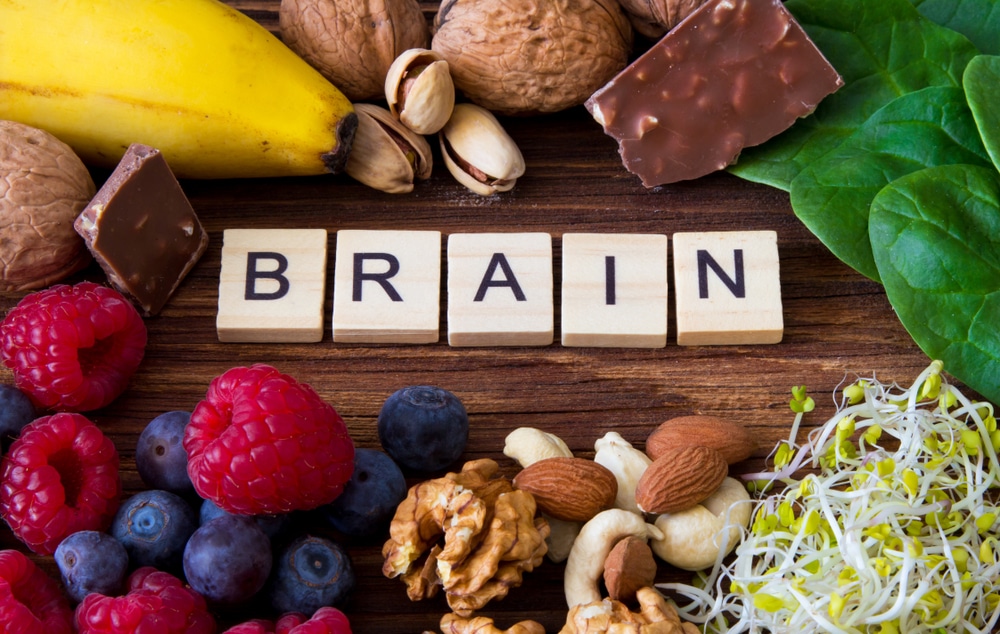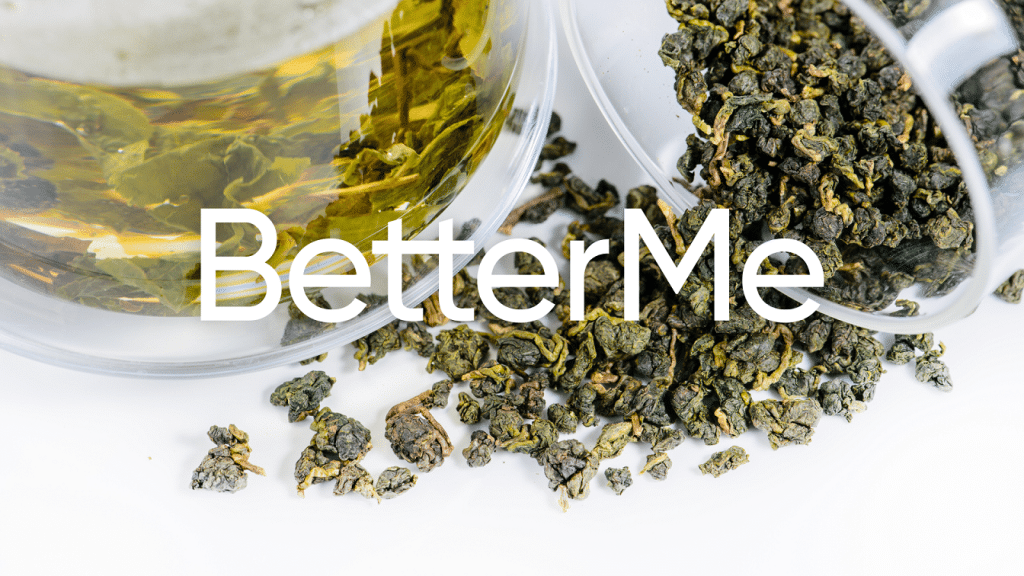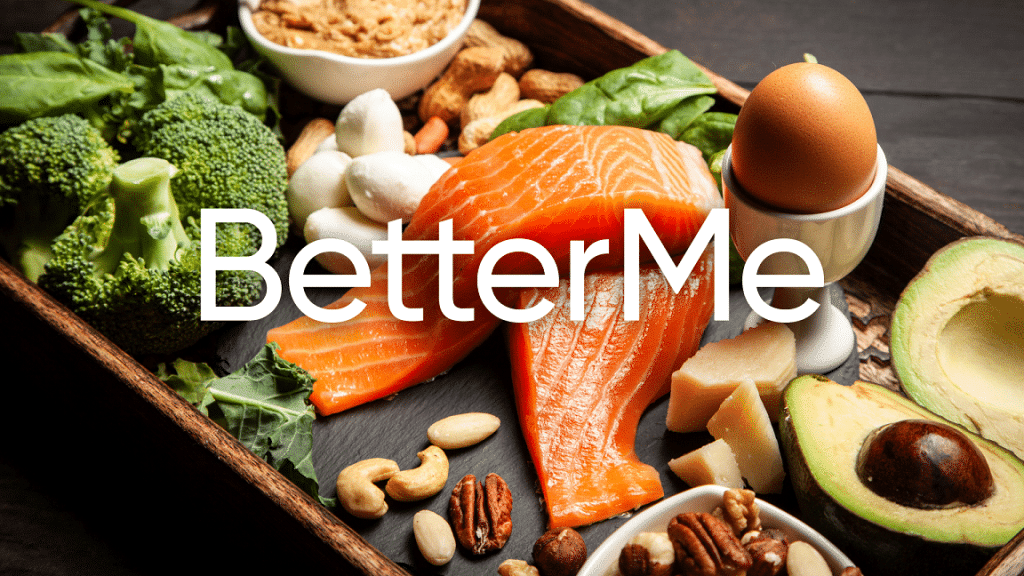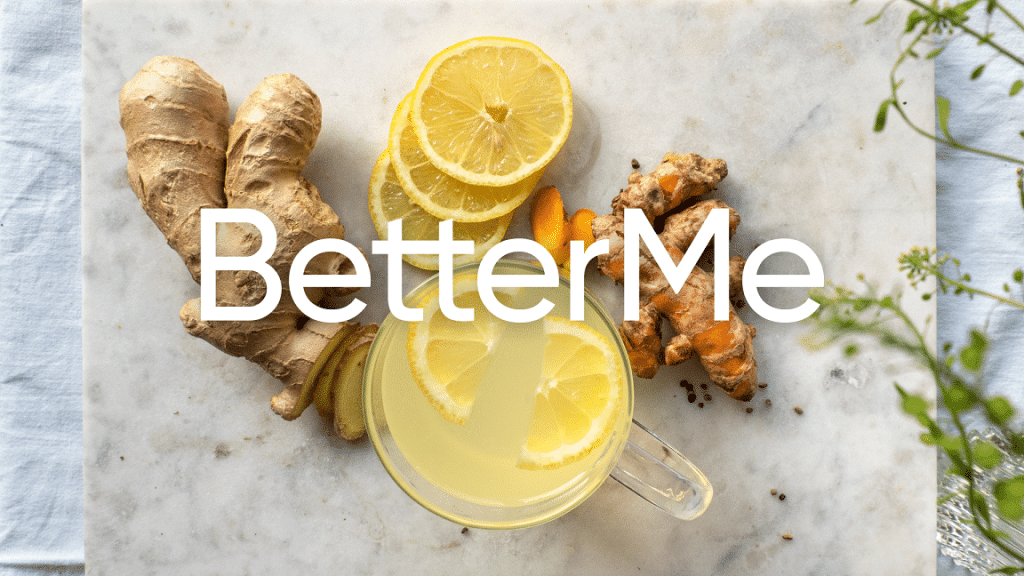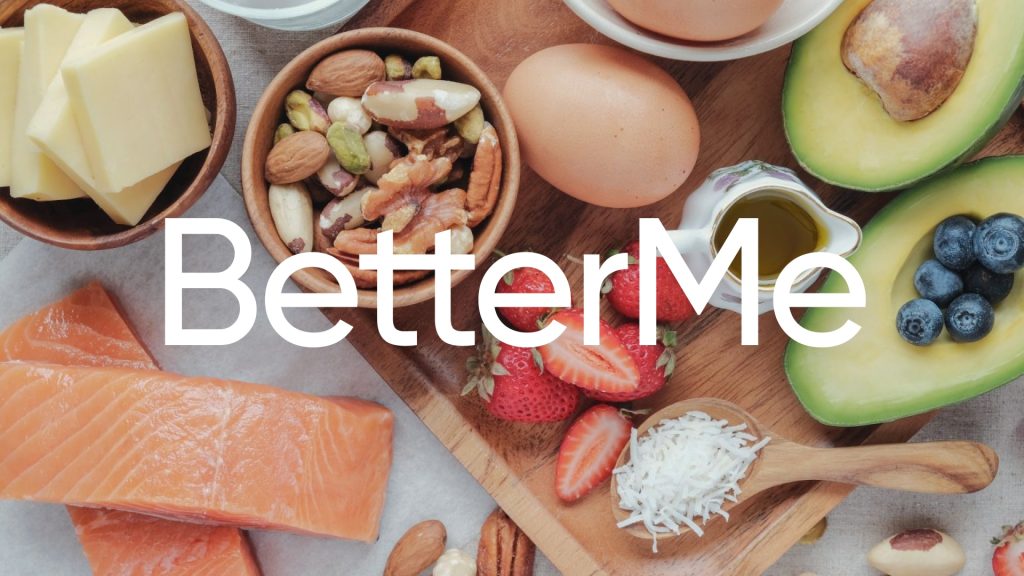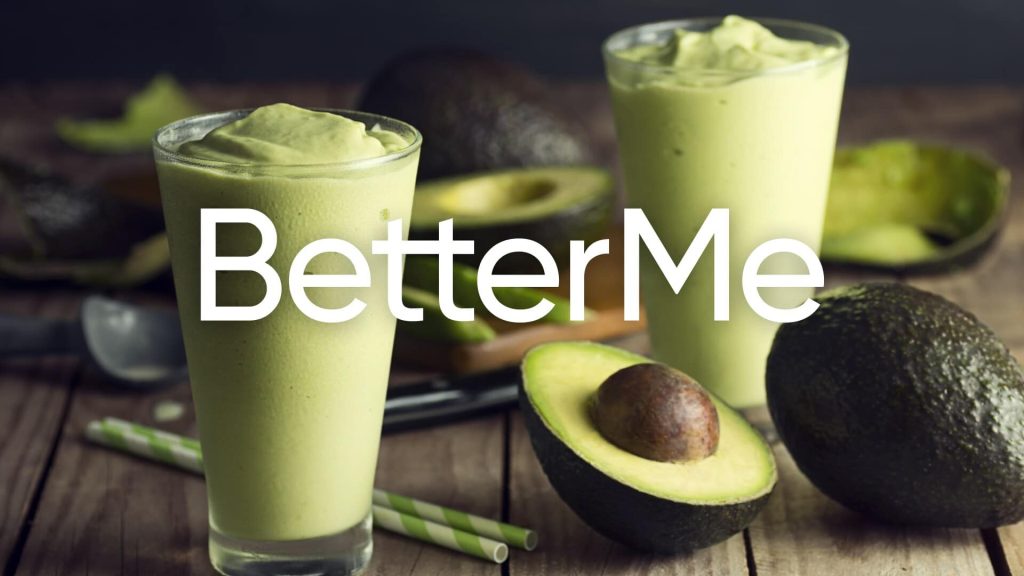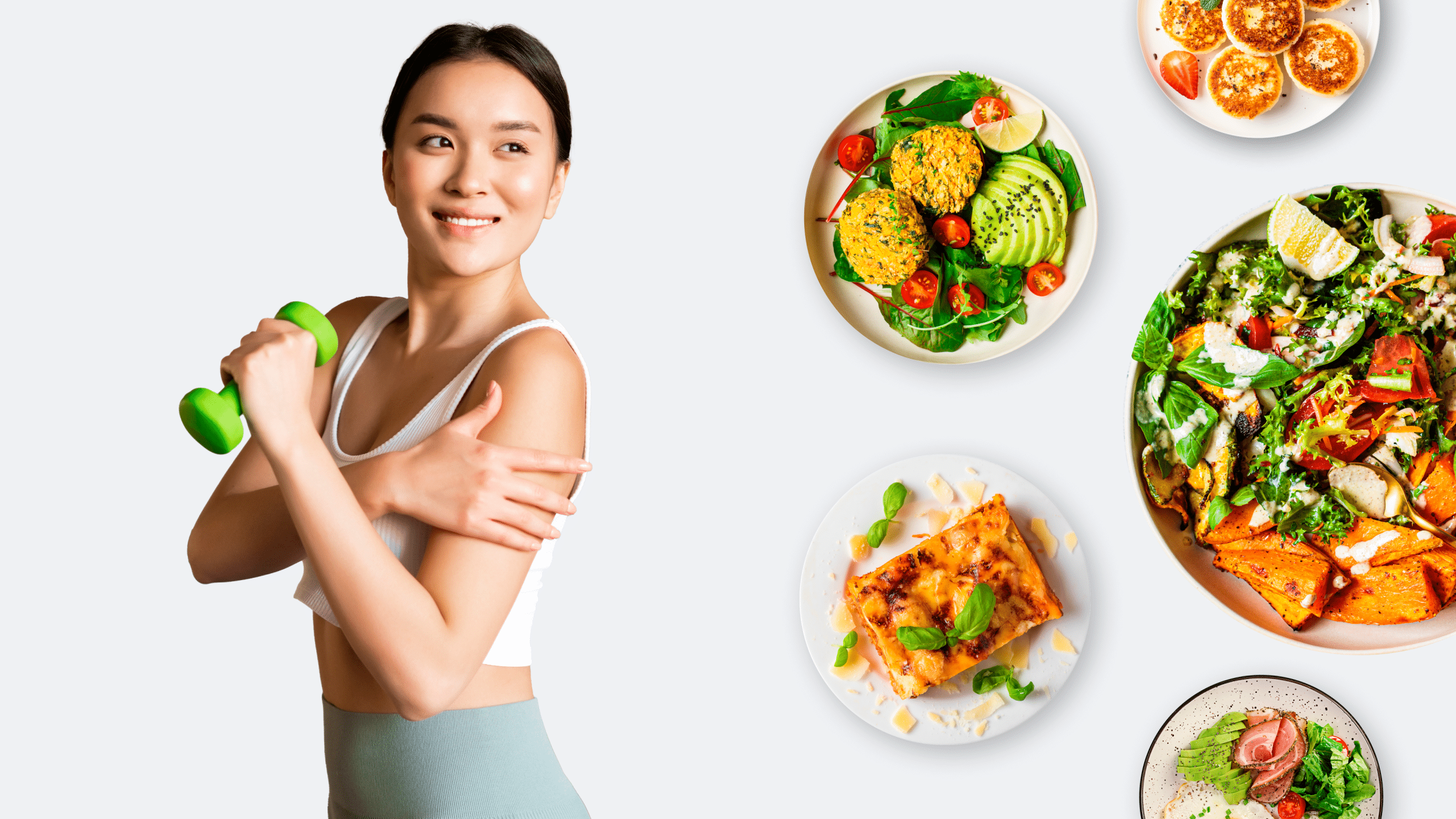Your brain is an integral part of you. The brain is a fascinating organ that controls all bodily functions, decodes info from the outside world and the essence of the soul and mind. Given the many roles the brain performs, it is vital to keep it in good working condition.
The connection between excess body fat and food might be easy to wrap your head around. But with food and the brain, that might not be the case. Experts maintain that eating right is essential for a healthy brain. We explore 12 of the best foods for brain health.
What Foods Are Best For Brain Health?
The brain is a sophisticated organ that weighs about 3 pounds in the average adult. It controls thought, creativity, emotion, motor skills, intelligence, breathing, hunger, temperature, and speaking. The brain also receives signals from the five senses – sight, taste, hearing, touch, and smell.
60% of the brain consists of fat, while the other 40% is protein, salts, water and carbohydrates. The brain is a soft mass made up of supportive tissues, blood vessels, and nerves connected to the spinal cord. Together, the spinal cord and brain form the central nervous system.
The brain uses about 20 % of the body’s total calories, as it needs fuel to maintain concentration and execute its other functions properly (2). This organ requires nutrients to stay healthy. For example, Omega 3 fatty acids help build and repair brain cells, while antioxidants help reduce inflammation and oxidative stress associated with brain aging and neurodegenerative conditions like Alzheimer’s (17).
The brain is harmed the most by a poor diet in comparison to other organs in the body. There are a few misconceptions surrounding which foods are best for brain health. The most popular myth is that a high-fat diet is beneficial when this is not the case. A well-balanced diet should incorporate fruits, vegetables, protein, whole grains, nuts, and seeds.
You may find that after eating a sugary and fat-filled meal, you are sluggish. Such symptoms originate from the brain and not the stomach. Refined carbs are not ideal for brain health as they have a high glycemic index. When eaten in large quantities, goods with a high glycemic index and load may impair memory in adults and children (7)
So, what are the best foods to eat for brain health? Note that you shouldn’t eat just one food because it is suitable for brain health. Your body needs several nutrients to function, all of which cannot be obtained from one source.
Read More: Brain Food Snacks Edition: 10 Best Bitings To Boost Your Brain Function
Here is a list of the best foods for brain health and memory:
Green Tea
First on our list of the top 5 best foods for brain health is green tea. Green tea is praised and used widely owing to its diverse range of health benefits. Green Tea contains caffeine, a component that boosts brain function. Research shows that phytochemicals in green tea including caffeine can increase concentration, memory, performance, and focus (8).
Another component that makes green tea a brain-healthy beverage is L-theanine. It is an amino acid that can cross the blood-brain barrier and helps increase the activity of gamma-aminobutyric acid (28). GABA is the chief inhibitory neurotransmitter that helps reduce anxiety and helps you feel relaxed.
One study found that L-theanine in green tea helps you relax by countervailing the stimulating effects of caffeine (8). What’s more, green tea is rich in antioxidants and polyphenols that may help prevent the brain from degeneration and lower the risk of Parkinson’s disease and Alzheimer’s (16).
Fatty Fish
When people mention brain-rich foods, the first that comes to mind is oily fish. Fatty fish are an excellent source of omega-3-fatty acids. These fatty acids help build membranes around cells in the body, including brain cells (20). Thus, they improve the structure of brain cells.
One small study found that people with high omega 3 fatty acids levels had increased vascularity in the brain (23). The experts also noted a link between omega-3 fatty acids and cognitive abilities. The evidence thus suggests that eating omega-3 rich foods may improve brain function.
On the other hand, inadequate amounts of omega-3s may have a negative impact on cognition and synaptic plasticity (19).
Excellent sources of omega-3 fatty acids include:
- Tuna
- Sardines
- Salmon
- Herring
- Mackerel
You can also get omega-3 from non-fish sources like flax seeds, walnuts, and soybeans.
BetterMe app is a foolproof way to go from zero to a weight loss hero in a safe and sustainable way! What are you waiting for? Start transforming your body now!
Coffee
Remember drinking coffee to stay up all night when studying for that final exam? Coffee is a popular concentration aid that many drink to stay awake and focused. Caffeine in coffee blocks a substance called adenosine that makes a person sleepy (26). This boosts alertness.
Caffeine also increases the brain’s capacity to process information. Experts found that caffeine causes an increase in brain entropy (4). It refers to the number of neural states the brain can access and is positively linked to intelligence (3). When entropy is high, the brain can process more info.
Coffee is also a good source of antioxidants that support brain health as one grows older (9). Some studies have linked consumption of coffee to a lower risk of:
- Stroke
- Alzheimer’s
- Cognitive decline
- Parkinson’s disease
The recommended intake of coffee for non-pregnant adults is about 200mg of caffeine (21/2 cups of coffee) in a sitting and 400 mg per day (5 cups of coffee). Caffeine may cause sleep disturbances in sensitive people (9). But when you consume caffeine in the right amounts, it does not negatively affect a consumer or cause dependence.
Dark Chocolate
Dark chocolate is a variant that contains cocoa without the milk or butter found in milk chocolate. It has several brain-boosting components, such as caffeine and a type of antioxidants called flavonoids, abundantly in the form of epicatechin.
Flavonoids have a positive effect on body composition and cognitive performance. Research shows that these compounds provoke neurogenesis, blood vessel formation, and neuron structure changes, especially in the brain associated with memory and learning. They also have a positive effect on cerebral blood flow (29).
Flavonoids also interact with signalization cascades that result in neural death induced by toxicants such as oxygen radicals, thus promoting neuronal survival and synaptic plasticity. Flavonoids may also lower the risk of stroke and Alzheimer’s (29).
Eating dark chocolate also makes you happy. In a recent study, one set of participants was given chocolate while the other was given crackers. The participants who were instructed to eat chocolate mindfully showed an increase in positive mood compared to those who ate crackers (30). However, it is still unclear whether it’s the delicious taste of chocolate or its compounds that make people happy.
Read More: Dark Chocolate Weight Loss: Losing Weight While Treating Yourself
Turmeric
What are 5 best foods for brain health? Turmeric features in the top 5. Turmeric is a spice derived from the roots of the turmeric plant that we commonly use in curries and spicy dishes. It is yellow and has several potent biological benefits.
Researchers have studied turmeric with regard to its potential in treating cystic fibrosis, liver disease, hemorrhoids, and arthritis (27). It contains compounds called curcuminoids, including bisdemethoxycurcumin, curcumin, and demethoxycurcumin. Curcumin is the main active ingredient in turmeric, is a powerful antioxidant, and is widely used due to its therapeutic properties.
Curcumin may help improve memory in individuals with Alzheimer’s disease. The process through which Alzheimer’s degrades nerve cells involves inflammation, formation of beta-amyloid plaques, oxidative damage, and metal toxicity. Curcumin may help clear amyloid plaques, decrease the free radical formation and increase the activity of oligodendrocytes (27).
This component also helps in treating depression. It helps boost serotonin and dopamine, hormones that improve mood. In one study, curcumin improved depression symptoms as effectively as antidepressants over six weeks (10).
Curcumin may also help in the growth of new brain cells. The component boosts a growth hormone known as brain-derived neuropathic factor. Many brain disorders are associated with a decrease in the levels of BDNF, including Alzheimer’s. Curcumin, however, causes an increase in the levels of this growth hormone (6).
Eggs
Eggs are often part of our breakfast meals, whether you boil, fry, or scramble them. They are an excellent source of several nutrients linked to brain health, including vitamin B6, vitamin B12, choline, and folate.
Choline is an essential nutrient that plays vital roles in the body and is crucial for healthy brain development. The body uses choline in the synthesis of acetylcholine, the chief neurotransmitter in the parasympathetic nervous system. Acetylcholine is involved in memory storage (5). Studies show that a higher level of choline is linked to better memory and cognitive function (21).
The B vitamins found in eggs also play a role in brain health. They may help delay the progression of mental decline in older individuals. A deficiency of vitamin B 12 and folate have been linked to depression (31).
Vitamin B12 is involved in synthesizing brain chemicals and regulating sugar levels in the brain. Moreover, a folic deficiency is common among elderly individuals with dementia, and some (though not all) studies indicate that folic acid supplementation can help reduce age-related mental decline (31). This makes eggs one of the best foods for brain health for the elderly.
Broccoli
Broccoli is one of the best vegetarian foods for brain health. It is a great source of phytochemicals and antioxidants (22). Antioxidants help protect the brain cells from damage caused by free radicals.
This cruciferous vegetable is rich in vitamin K and supplies over 100% of the recommended daily intake in a 91-gram serving. Vitamin K is crucial for synthesizing sphingolipids, found in high concentrations in the brain cell membranes. Alterations in the sphingolipid metabolism are linked to brain aging and conditions such as Alzheimer’s disease (34).
Additionally, broccoli is a rich source of compounds known as glucosinolates. When broken down by the body, they produce isothiocyanates. Isothiocyanates may help reduce oxidative stress, counteract and inflammatory mechanisms, and help prevent and manage neurodegenerative diseases (1).
Intense sweat sessions, working weight loss tips, lip-smacking recipes come in one package with the BetterMe app. And all of it is at your fingertips, start transforming your life now!
Oranges
Next on our list of 10 best foods for brain health is oranges. Oranges are a well-known source of vitamin C. You can get all the vitamin C you need daily from one medium orange. This is crucial as vitamin C is vital in preventing age-related mental decline and conditions such as Alzheimer’s.
Vitamin C, also known as ascorbate, is a vital antioxidant component. It helps prevent damage as a result of free radicals that cause oxidative stress. Neurodegenerative diseases such as Alzheimer’s and Parkinson’s usually involve high levels of oxidative stress (32).
Vitamin C also supports your brain as you grow older. This vitamin also has essential roles such as collagen production, catecholamine synthesis, and regulation of hypoxia-inducible factor alpha-1 (32).
Pumpkin Seeds
Did you know that most parts of the pumpkin are edible? You can eat the leaves, flesh, seeds, and even the skin of some varieties of pumpkins. The stalk is the only exception. Pumpkin seeds are full of valuable nutrients that contribute to good brain health.
Pumpkin seeds contain antioxidants that help protect brain cells from damage by free radicals. They are also a potent source of iron, magnesium, copper, and zinc. Each of these nutrients has benefits for brain health:
- Iron. Iron deficiency results in brain fog and impaired brain function (12).
- Magnesium. Magnesium is the second most abundant cation and is responsible for memory and learning. A deficiency of magnesium leads to several neurological conditions, including depression and migraines (14).
- Copper. The brain uses copper to relay signals to the body. Copper deficiency can seriously affect brain function and increase the risk of Wilson’s, Alzheimer’s, and Menkes diseases (15).
- Zinc. This component is crucial in the nerve signaling process. Low zinc levels are linked to many brain disorders such as depression, Alzheimer’s, Parkinson’s, and Huntington’s diseases (35).
Berries
Berries just go with about anything, be it pancakes or a yogurt parfait. They are a low-calorie fruit that provides many health benefits including improving brain health. Antioxidant-rich berries include blueberries, strawberries, blackcurrants, blackberries, and mulberries.
Berries contain anthocyanins, a group of plant antioxidants that have antioxidant and anti-inflammatory properties. Other antioxidants in berries include caffeic acid, quercetin, and catechin. Antioxidants protect the brain from damage by oxidative stress and inflammation and conditions that contribute to neurodegenerative diseases (18).
The components in berries are also capable of signaling pathways involved in cell survival, cell plasticity, and neurotransmission. In addition, natural polyphenols found in berries may help improve learning, memory, and cognitive abilities. Some antioxidants have been found to accumulate in the brain and help enhance the communication between brain cells (18).
Avocado
Avocados are one of the best sources of healthy (unsaturated) fats. Eating avocados is not only great for heart health but is also beneficial for our brain.
Consuming monounsaturated fats, especially oleic fatty acids, may help lower blood pressure. High blood pressure adversely affects cognitive function resulting in mental decline (24). Hypertension damages cerebral blood vessels’ structure and function, resulting in ischemic damage of specific regions in the brain crucial for cognition (11).
What is good for the heart is good for the brain. Therefore by helping control blood pressure, the monounsaturated fats in avocado may help protect brain health, especially as you grow older.
Nuts
Nuts are probably one of the healthiest snacks you can enjoy. They are a good source of antioxidants and protein. One small study done in 2014 linked a higher nut intake to better brain function in older age (13).
Nuts are a great source of vitamin E, an antioxidant that protects cells from damage due to oxidative stress. Vitamin E may also improve cognitive function and lower the risk of Alzheimer’s (33).
While nuts are generally suitable for brain health, walnuts provide additional benefits as they contain omega-3 fatty acids. Nuts with the highest concentration of vitamin E include almonds, hazelnuts, and walnuts (25).
Conclusion
Numerous foods help keep the brain healthy. Some supply the brain with antioxidants and protect brain cells from oxidative damage, while others help reduce the risk of neurodegenerative diseases and increase blood flow to the brain.
You can strategically include any of these foods in your diet to promote brain health. This, however, does not mean that they should be the only foods on your menu or that you overindulge. Foods like dark chocolate contain sugar and are harmful to the brain when consumed in excess. Always consult your doctor if you have any concerns or questions about a particular diet and its benefits.
Sticking to a healthy diet based on your health needs, allergies and preferences is a great idea, however when combined with a workout plan that meets your goals, it might bring you significant benefits. Better mood, stronger muscles and endurance are just some. Check out the 20 Minute Full Body Workout at Home below.
DISCLAIMER:
This article is intended for general informational purposes only and does not address individual circumstances. It is not a substitute for professional advice or help and should not be relied on to make decisions of any kind. Any action you take upon the information presented in this article is strictly at your own risk and responsibility!
SOURCES:
- An overview on neuroprotective effects of isothiocyanates for the treatment of neurodegenerative diseases (2015, pubmed.ncbi.nlm.nih.gov)
- Appraising the brain’s energy budget (2002, ncbi.nlm.nih.gov)
- Brain entropy and human intelligence: A resting-state fMRI study (2018, ncbi.nlm.nih.gov)
- Caffeine Caused a Widespread Increase of Resting Brain Entropy (2018, ncbi.nlm.nih.gov)
- Choline – Dietary Reference Intakes for Thiamin, Riboflavin, Niacin, Vitamin B6, Folate, Vitamin B12, Pantothenic Acid, Biotin, and Choline – NCBI Bookshelf (1998, ncbi.nlm.nih.gov)
- Curcumin Enhances Neurogenesis and Cognition in Aged Rats: Implications for Transcriptional Interactions Related to Growth and Synaptic Plasticity (2012, ncbi.nlm.nih.gov)
- Diet-Induced Cognitive Deficits: The Role of Fat and Sugar, Potential Mechanisms and Nutritional Interventions (2015, pubmed.ncbi.nlm.nih.gov)
- Effect of Green Tea Phytochemicals on Mood and Cognition (2017, pubmed.ncbi.nlm.nih.gov)
- Effects of coffee/caffeine on brain health and disease: What should I tell my patients? (2016, ncbi.nlm.nih.gov)
- Efficacy and safety of curcumin in major depressive disorder: a randomized controlled trial (2013, pubmed.ncbi.nlm.nih.gov)
- Impact of Hypertension on Cognitive Function (2016, ncbi.nlm.nih.gov)
- Iron deficiency on neuronal function (2012, pubmed.ncbi.nlm.nih.gov)
- LONG-TERM INTAKE OF NUTS IN RELATION TO COGNITIVE FUNCTION IN OLDER WOMEN (2015, ncbi.nlm.nih.gov)
- Magnesium in depression (2013, pubmed.ncbi.nlm.nih.gov)
- Metabolism and functions of copper in brain (2014, pubmed.ncbi.nlm.nih.gov)
- Neurological mechanisms of green tea polyphenols in Alzheimer’s and Parkinson’s diseases (2004, pubmed.ncbi.nlm.nih.gov)
- Neuroprotective Effect of Antioxidants in the Brain (2020, ncbi.nlm.nih.gov)
- Neuroprotective effects of berry fruits on neurodegenerative diseases (2014, ncbi.nlm.nih.gov)
- Novel insights into the effect of vitamin B₁₂ and omega-3 fatty acids on brain function (2016, pubmed.ncbi.nlm.nih.gov)
- Omega-3 Fatty Acids – Consumer Fact Sheet (2021, ods.od.nih.gov)
- Plasma free choline, betaine and cognitive performance: the Hordaland Health Study (2012, pubmed.ncbi.nlm.nih.gov)
- Potential health benefits of broccoli- a chemico-biological overview (2009, pubmed.ncbi.nlm.nih.gov)
- Quantitative Erythrocyte Omega-3 EPA Plus DHA Levels are Related to Higher Regional Cerebral Blood Flow on Brain SPECT (2017, pubmed.ncbi.nlm.nih.gov)
- Relationship of dietary monounsaturated fatty acids to blood pressure: the international study of macro/micronutrients and blood pressure (2013, ncbi.nlm.nih.gov)
- Role of Walnuts in Maintaining Brain Health with Age (2014, academic.oup.com)
- Roles of adenosine and its receptors in sleep-wake regulation (2014, pubmed.ncbi.nlm.nih.gov)
- The effect of curcumin (turmeric) on Alzheimer’s disease: An overview (2008, ncbi.nlm.nih.gov)
- The neuropharmacology of L-theanine(N-ethyl-L-glutamine): a possible neuroprotective and cognitive enhancing agent (2006, pubmed.ncbi.nlm.nih.gov)
- The neuroprotective effects of cocoa flavanol and its influence on cognitive performance (2013, ncbi.nlm.nih.gov)
- The sweet life: The effect of mindful chocolate consumption on mood (2016, pubmed.ncbi.nlm.nih.gov)
- Vitamin B-6, B-12, and folic acid supplementation and cognitive function – A systematic review of randomized trials (2007, researchgate.net)
- Vitamin C Function in the Brain: Vital Role of the Ascorbate Transporter (SVCT2) (2010, ncbi.nlm.nih.gov)
- Vitamin E – Health Professional Fact Sheet (2021, ods.od.nih.gov)
- Vitamin K and the Nervous System: An Overview of its Actions 1, 2 (2012, ncbi.nlm.nih.gov)
- Zinc: indications in brain disorders (2005, pubmed.ncbi.nlm.nih.gov)

